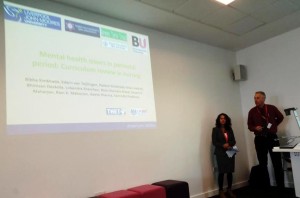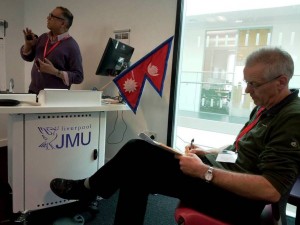Call for Proposals
Science Stalls for Einstein’s Garden at the Green Man Festival 2016 – Deadline 21 March
The Green Man Festival is held near the Black Mountains in Wales and attracts 20,000 festival goers. The festival has earned a reputation as one of the great independent festivals in the UK. The 2016 festival dates are 18/19/20/21 August. For more information see www.greenman.net
Einstein’s Garden is a fusion of science, art and nature. It has a diverse programme of performances, workshops and installations that use creativity, play and participation to engage people with science and research in unexpected ways. www.greenman.net/explore/areas/einsteins-garden
They are looking for organisations that would like to bring a stall to Einstein’s Garden with the aim of engaging festival audiences with science. Stalls can explore fundamental scientific ideas or phenomena, the process of science or current scientific research. It is essential that stalls include as much interactivity and participation as possible for festival goers and that they embody the creative and playful spirit of Einstein’s Garden.
The Einstein’s Garden theme for 2016 is COMPLEXITY. It is not essential for science stalls to directly relate to the theme, but it may help to shape your ideas.
The fee for standard stalls (up to 4mx4m) is £250 plus VAT. Fees for larger stalls will be negotiable on a case-by-case basis. There will be a limited number of free pitches available for small organisations.
RKEO can support you with funding attendance at the festival and cover materials, equipment, travel and subsistence expenses. – please contact Naomi Kay (nkay@bournemouth.ac.uk)
The stall must be set up by 4pm on Wednesday 17th August (for a site-wide health and safety inspection) and your stall must be open from 12 midday until 7pm on 18th August and from 10am until 7pm on 19th, 20th and 21st August. There will be no power available for stalls and no generators are allowed in Einstein’s Garden so if your stall does need power you must provide your own renewable energy.
If you would like to apply to run a science stall in Einstein’s Garden please complete the online form here: https://marcatoapp.com/forms/greenman/einsteinsgarden/new by Monday 21st March.
The Green Man Festival will provide up to 6 festival passes for successful applicants but we are unable to cover any expenses or provide meal vouchers. Please note that information about Science Stalls will be included on the Green Man Festival website but will not be included in the festival programme.
Camp Bestival
We’re also looking for potential activities to run at Camp Bestival, however these would need to be child friendly and would be more workshop based than drop ins – Please contact Naomi Kay (nkay@bournemouth.ac.uk/ 61342) for more information.
 Sascha Dov Bachmann, Associate Professor in International Law, FMC, has been made Extraordinary Visiting Professor (AP) in War Studies at the Swedish Defence University (FHS). This appointment recognizes his contribution to the work of the Department of Military Studies at FHS on the subject of Hybrid War and Hybrid Threats. He continues to collaborate with colleagues from Sweden, Germany and NATO on the subject.
Sascha Dov Bachmann, Associate Professor in International Law, FMC, has been made Extraordinary Visiting Professor (AP) in War Studies at the Swedish Defence University (FHS). This appointment recognizes his contribution to the work of the Department of Military Studies at FHS on the subject of Hybrid War and Hybrid Threats. He continues to collaborate with colleagues from Sweden, Germany and NATO on the subject.







![InnovateUK_LogoA_Interim_RGBx320govuk[1]](http://blogs.bournemouth.ac.uk/research/files/2014/12/InnovateUK_LogoA_Interim_RGBx320govuk11-300x90.jpg)












 Dr. Ashraf cited on ‘Modest Fashion’ in The Guardian
Dr. Ashraf cited on ‘Modest Fashion’ in The Guardian NIHR-funded research launches website
NIHR-funded research launches website Academics write for newspaper in Nepal
Academics write for newspaper in Nepal New paper published on disability in women & girls
New paper published on disability in women & girls Global Consortium for Public Health Research 2025
Global Consortium for Public Health Research 2025 MSCA Postdoctoral Fellowships 2025 Call
MSCA Postdoctoral Fellowships 2025 Call ERC Advanced Grant 2025 Webinar
ERC Advanced Grant 2025 Webinar Horizon Europe Work Programme 2025 Published
Horizon Europe Work Programme 2025 Published Horizon Europe 2025 Work Programme pre-Published
Horizon Europe 2025 Work Programme pre-Published Update on UKRO services
Update on UKRO services European research project exploring use of ‘virtual twins’ to better manage metabolic associated fatty liver disease
European research project exploring use of ‘virtual twins’ to better manage metabolic associated fatty liver disease